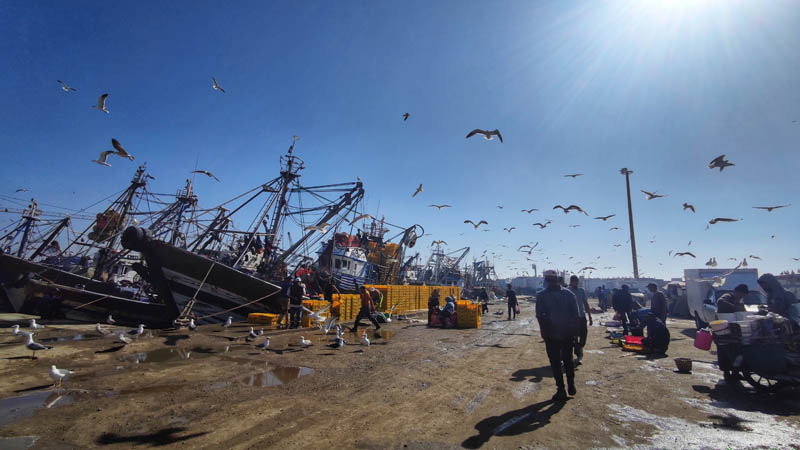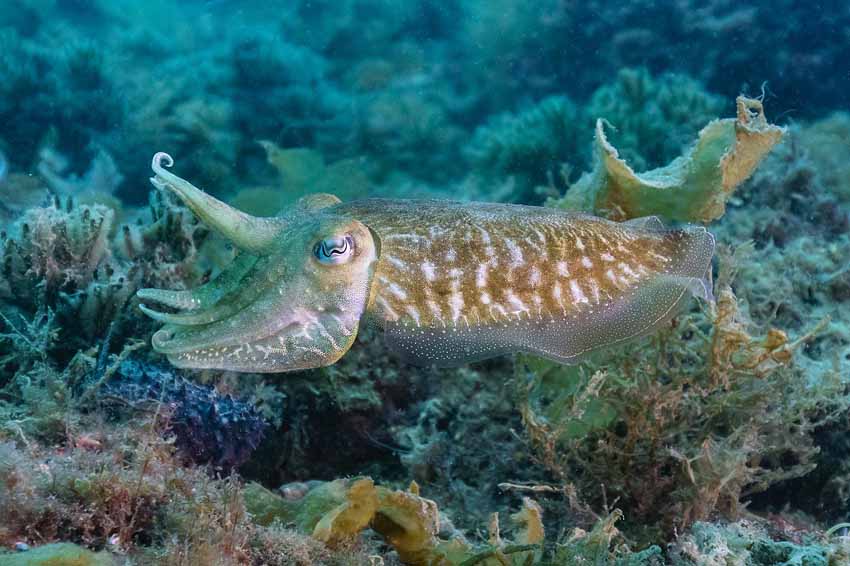Fisheries and the environment: towards a sustainable future
Últimas noticias
An LGTBIQ+ perspective on the animal kingdom
Una mirada LGTBIQ+ al reino animal
Circular Economy in Action: Valorisation of By-products through Projects like PRIMA NEWFEED
Mikel Basterretxea, Arkaitz Pedrajas, Esteban Puente and Estanis Mugerza. AZTI experts in fisheries technology
There is a close relationship between the European Community Fisheries Policy (CFP), which aims to achieve sustainable fisheries in environmental, economic and social terms, and the Marine Strategy Framework Directive (MSFD), which aims to protect and conserve the marine environment. The two instruments are intended to converge towards the single objective of preserving the marine ecosystem while ensuring the sustainable exploitation of fisheries resources. On the other hand, one of the greatest challenges facing humanity today is the effective implementation of a policy to mitigate climate change, an initiative in which the European Union is at the forefront with its Green Pact, which aims to achieve “climate neutrality” by 2050, i.e. a balance of zero net greenhouse gas emissions.
In this context, the value of marine protein from fishery resources is also of particular importance, and recent studies have shown that its impact on greenhouse gas emissions is significantly lower than that of protein production from land-based sources. This makes it all the more important to manage the exploitation of marine resources in a balanced way to ensure their conservation and that of the marine environment. However, fisheries production in Europe has declined in recent years and does not currently meet European demand for marine products, which has to be met by imports from third countries, some of which have shortcomings in fisheries, environmental and social management.

In this context, AZTI is working on research projects funded by the General Secretariat for Maritime Fisheries as part of the Spanish Plan for Recovery and Resilience 2021, in which the fishing sector is collaborating at European level to develop more selective fishing gear to reduce catches of either undesirable species or fish sizes. In parallel, further developments and trials are being carried out to reduce by-catches of species that are sensitive due to their importance to marine ecosystems.
With regard to the capture of other unwanted species by the various fisheries, it is necessary to improve the selectivity of the fishing gear, as the current decrease in fisheries production makes it more important than ever to make efficient use of marine resources to ensure that stocks are exploited in accordance with the principle of maximum sustainable output. For this reason, possible alternatives to reduce by-catches of unwanted species are being developed and evaluated, including the prototyping and evaluation of alternative nets and fishing methods to minimise unwanted by-catches.
In the framework of other projects, the activity of the commercial fishing fleet is monitored, generating detailed knowledge about bycatch patterns, particularly in the case of cetaceans. In this sense, the implementation of Electronic Monitoring Systems (EMS) on fishing vessels is turning out to be very valuable for gathering detailed scientific information to be used in these projects. The generalisation of this EMS equipment in fishing fleets makes it possible not only to gain a deeper understanding of bycatch and the operational factors that may lead to it, but also to evaluate its importance in relation to that of the marine mammal populations affected. In addition, the effectiveness of technical measures, whether technological or operational, to avoid interactions with marine mammals is being investigated. Recent tests on the effectiveness of active acoustic deterrent devices (pingers) in fishing vessels have shown that these devices have a significant and important effect in reducing cetacean bycatch. These small, simple-to-deploy devices are attached to the fishing net and emit acoustic signals with specific characteristics in order to keep cetaceans away from the net, thus avoiding a possible capture. These promising results invite further study of their effectiveness in other fisheries where bycatch may occur.
AZTI also carries out studies to characterise and evaluate the operation of fishing vessels in terms of energy consumption, in order to propose alternative modes of operation that, while maintaining fishing efficiency, allow a reduction in fuel consumption and associated gas emissions.
Another current issue, closely linked to the preservation of the marine environment, is the pollution generated by various human activities, which ultimately affects the various trophic levels of the ecosystem and, ultimately, humans as consumers of seafood products. AZTI is therefore actively involved in the application of the principles of the circular economy in the fisheries sector, promoting alternatives for recycling on board both the waste generated and the waste from the various fishing gears, as well as the development of the least polluting technologies.
All of this research and close collaboration between the scientific community, the fishing industry and the administration is aimed at finding ways to reconcile the laudable objective of conserving marine biota for present and future generations with the development of a relevant socio-economic activity such as commercial fishing, which provides food of marine origin and is fundamental to our society.
Article originally published in Industrias pesqueras magazine.







